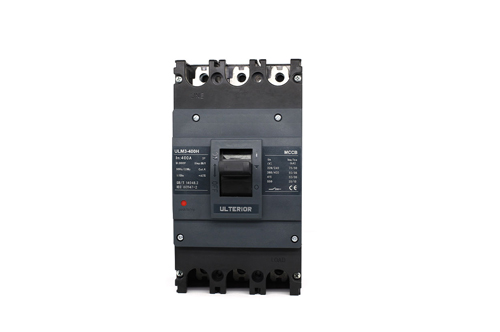Feb 10,2025
Editer: Sherry
The MCCB CM3 Series, widely used in electrical systems, may encounter some common faults during operation. Understanding how to solve these issues can ensure the stable operation of the electrical system.

1. Frequent Tripping
Possible Reasons
One common cause is over - current. When the electrical load exceeds the rated current of the MCCB CM3, it will trip to protect the system. Another reason could be a short - circuit in the electrical circuit. Loose connections or damaged insulation can lead to short - circuits, triggering the breaker to trip.
Solutions
For over - current problems, first, check the electrical load. If the load is indeed too high, consider redistributing the load among multiple circuits or upgrading to a higher - capacity MCCB. In case of a short - circuit, visually inspect the electrical wires and connections. Look for any signs of damage, such as exposed wires or burnt - out connectors. Repair or replace the damaged parts to eliminate the short - circuit.
2. Failure to Trip
Possible Reasons
The main reason for the MCCB CM3 failing to trip when a fault occurs is often a mechanical or electrical malfunction inside the breaker. For example, the tripping mechanism may be stuck due to dirt or debris, or the tripping coil may be damaged.
Solutions
If the tripping mechanism is stuck, carefully clean the breaker. Use a clean, dry brush to remove any dirt or debris from the moving parts. For a damaged tripping coil, it needs to be replaced. However, replacing the tripping coil requires professional skills. It's best to have a qualified electrician handle this task to ensure the proper installation and functionality of the new coil.
3. Overheating
Possible Reasons
Overheating usually results from high - resistance connections. When the connections between the MCCB CM3 and the electrical wires are loose or corroded, the contact resistance increases, generating heat during operation.
Solutions
Inspect the connections regularly. Tighten any loose screws or bolts to ensure a good electrical connection. If there is corrosion, clean the corroded parts with a suitable cleaning agent. You can also apply an anti - corrosion coating to prevent future corrosion.
In conclusion, being able to identify and solve common faults in the MCCB CM3 Series is essential for maintaining the normal operation of electrical systems. Regular inspection and timely maintenance can effectively reduce the occurrence of these faults and ensure the safety and reliability of the electrical system.